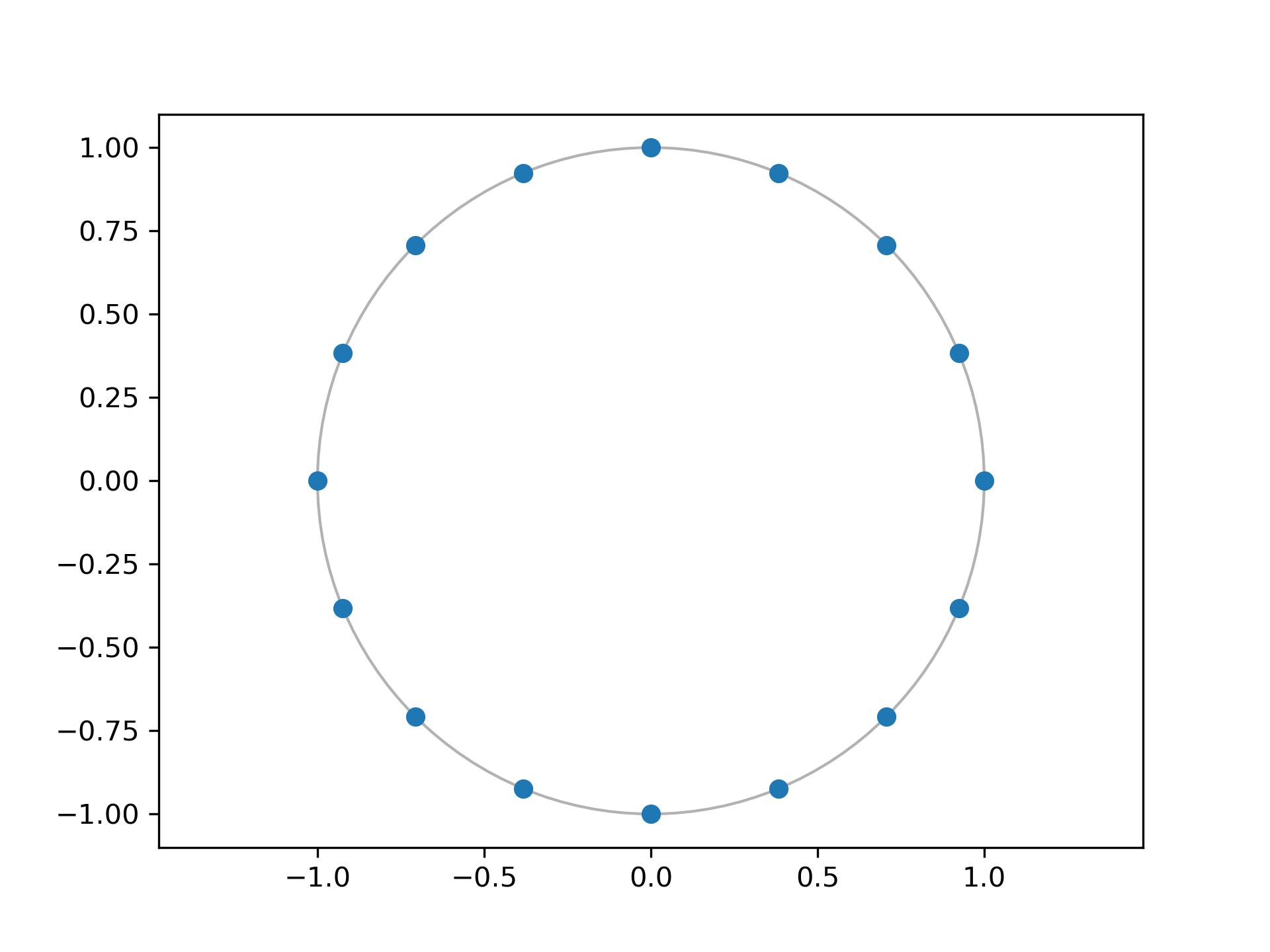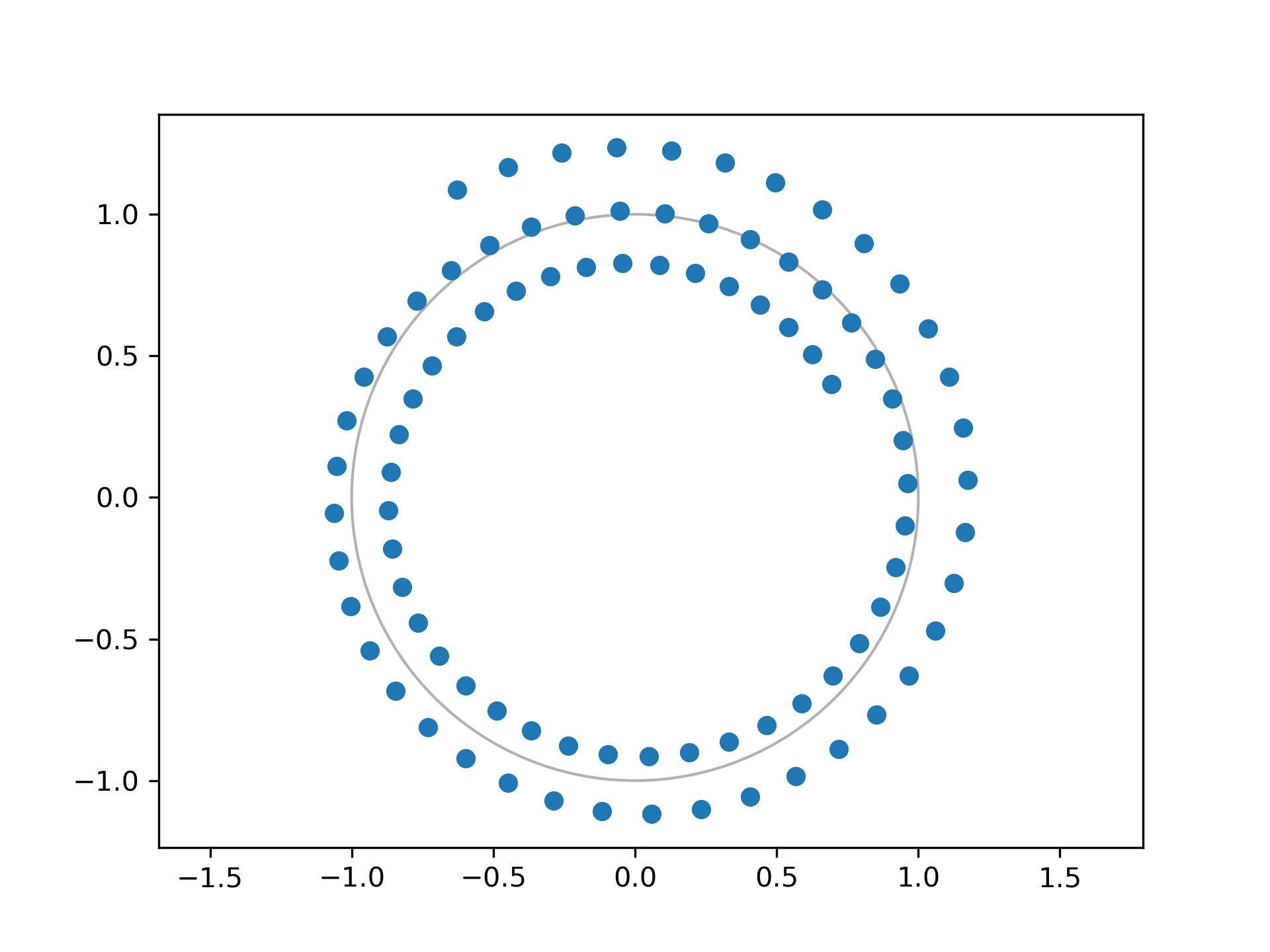czt_points(m, w=None, a=(1+0j))
The number of points desired.
The ratio between points in each step. Defaults to equally spaced points around the entire unit circle.
The starting point in the complex plane. Default is 1+0j.
The points in the Z plane at which CZT
samples the z-transform, when called with arguments m, w, and a, as complex numbers.
Return the points at which the chirp z-transform is computed.
CZT
Class that creates a callable chirp z-transform function.
czt
Convenience function for quickly calculating CZT.
Plot the points of a 16-point FFT:
>>> from scipy.signal import czt_points
... points = czt_points(16)
... import matplotlib.pyplot as plt
... plt.plot(points.real, points.imag, 'o')
... plt.gca().add_patch(plt.Circle((0,0), radius=1, fill=False, alpha=.3))
... plt.axis('equal')
... plt.show()

and a 91-point logarithmic spiral that crosses the unit circle:
>>> m, w, a = 91, 0.995*np.exp(-1j*np.pi*.05), 0.8*np.exp(1j*np.pi/6)
... points = czt_points(m, w, a)
... plt.plot(points.real, points.imag, 'o')
... plt.gca().add_patch(plt.Circle((0,0), radius=1, fill=False, alpha=.3))
... plt.axis('equal')
... plt.show()

The following pages refer to to this document either explicitly or contain code examples using this.
scipy.signal._czt.CZT
scipy.signal._czt.czt_points
Hover to see nodes names; edges to Self not shown, Caped at 50 nodes.
Using a canvas is more power efficient and can get hundred of nodes ; but does not allow hyperlinks; , arrows or text (beyond on hover)
SVG is more flexible but power hungry; and does not scale well to 50 + nodes.
All aboves nodes referred to, (or are referred from) current nodes; Edges from Self to other have been omitted (or all nodes would be connected to the central node "self" which is not useful). Nodes are colored by the library they belong to, and scaled with the number of references pointing them